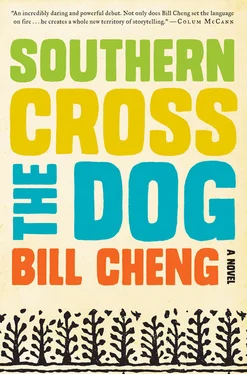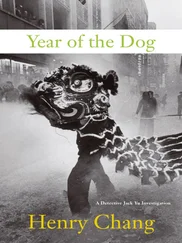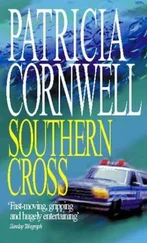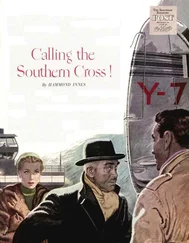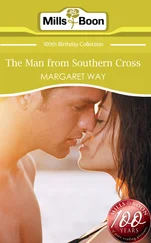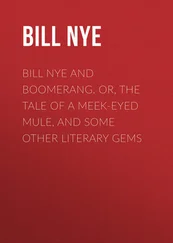Let go, he hissed.
Wendell knelt down and looked him over and Billy leaned his chin forward, his eyes full of anger.
Son, we been sitting up in those bushes over there all morning. We killed this deer.
I shot him. I shot him and chased him out over here. And it was just your dumb cracker luck that he ended up over here.
Billy! I cried.
Wendell chuckled.
Tell you what, son, we’ll cut you a few steaks you can take home with you. Would that be all right?
I chimed in, That would be generous of you, mister.
Hell no! Daddy, these pikers are trying to steal my deer!
The one man stood straight up and his face darkened. I grabbed my boy by the shoulder and jerked him back.
Sir, your boy has got a tongue on him.
I know, boss. He strong-willed. I’m trying to correct him. Billy, say sorry to the man.
But Billy would not relent.
I won’t say a damn thing! Everybody knows I shot that deer.
I clapped him hard across the mouth and for a second he was stunned, his eyes wide, full of water.
The man sucked his teeth with approval. He squatted down so that him and Billy were near eye to eye.
Matter of fact, everything in these woods is ours. You see, I don’t blame you if you didn’t read the signs but these are private lands, son, owned by my cousin Tommy over there. So if you ain’t got his permission, you can’t shoot at anything, or else it’s like stealing, you understand, son? You can’t even be here without his say-so, or else he could have you arrested. That sound about right, Tommy?
That’s right, Wendell, the one named Tommy said.
Didn’t see no signs, Billy muttered.
Wendell chuckled. Well, that’s all right, son. We all make mistakes, don’t we. And what do we do when we make a mistake?
Billy, I said sternly.
What do we do? What do we do when we make a mistake?
I pinched him hard on his neck and he glared at me.
Sorry, he mumbled.
The son of a bitch laughed and he reached out his hand and ruffled our son’s hair.
That’s a good boy, Wendell said. Say, that’s a pretty-looking rifle you got there. What is that, the new Henry?
Billy clutched it close.
Wendell looked square at me.
Is that a Henry rifle?
I didn’t say nothing.
Wendell laughed. Well, don’t that beat all? Tommy, didn’t you lose a Henry rifle in these woods just last week?
Tommy was grinning now.
That I did, he said.
Think of the coincidence! Don’t that look just like the one you lost?
Well, Wendell, I do believe you’re right. I do believe that that Henry rifle and mine are one and the same.
Our boy looked to me, his bottom lip quivering. Before I could say anything, Billy threw down that rifle, tried to smash it to pieces, but it lay there whole and solid on the grass. The one named Tommy hurried over to the gun, lifting it up, testing its weight in his paws. He couldn’t contain himself, he was so happy. He looked across at Wendell and Wendell looked back at him, laughing.
Wendell turned back to us.
Now get the hell out of here, huh?
It was a cold, empty walk home. No one spoke. I don’t recall how I squared it with Skinny that day, but somehow I squared it. When we came home, you asked us how we got on, but I didn’t have no heart to tell you. That night, when I went to talk to our boy and salve him some, there was such disdain in his eyes and it wounded me through like an arrow. But as hurt as I was by that look, what I took to bed with me that night was fear. I knew then that Billy’s tongue and hardheadedness would get him into worse trouble one day. That thought settled hard and cold in my lungs like a piece of iron.
FROM THEN ON, BILLY AND me did not get on as we had before, and I was helpless against his growing recklessness — couldn’t tamp it down with words nor whupping. And as the year passed, he became tall and manly with hair on his chin and heat in the blood. We argued often until, finally, one day he left us.
It tore me up same as you. Many a time, I’d catch you staring out the window or through the front passage out into the world while in the middle of some mending or sorting of peas. I would come behind you and put my arms around your smooth waist, hug you close, and such a terrible look would come across your face as if you were waking from some dream.
For a time, you hated me. We would lie apart from each other, the bed cold between us, not touching.
Which was fine, I suppose. I did not press you. Didn’t force myself on you. At times, when the loneliness was raging inside me, I would climb from the bed and sit down in the front room and watch the night.
Then the day came that they brought our boy home. Me and you stood outside the house and watched that wagon come up the road. Before we’d even seen who they were toting, you sensed it, moaning deep and low. I took your hand and you squeezed into mine hard. Something went loose and stringy inside my gut. The cart slowed down out in front of the house and the driver, who was red faced and dust covered, took out a kerchief to wipe himself. He was a white man and looked a little embarrassed for his cargo. Riding in the back were two boys.
I told you to wait inside, but you came down with me to the road. The two boys in the back carried down the load. They had set him on the carry-cart, wrapped in two sheets and packed under with ice. You let out a horrible cry and threw yourself against the body, sobbing. I saw that bruised, purple-looking thing, couldn’t match that bloated thing to our son. The tongue hung out of his mouth, the neck chafed and torn — the eyes not closed so they were dull and far away and looking at nothing. The same eyes that I would find you gazing out from in the coming days, as you followed our oldest son into the dark.
I pulled you to me, my pea, let you heave and sob against my chest. Your skin against me — it’d been so long. I had forgotten that warmth.
I walked you back into the house where you grabbed at Little Robert, who stared bewildered and afraid as his mama clutched and cried against him.
The boys offered their condolences. They said they knew Billy, that they were friends from Mayersville. One of them was a skinny, asthmatic boy. I’d learn later that he was the one who snuck over after the riders had left and cut the rope from Billy’s sweet neck. Even the driver, who looked uncertain of himself around us, climbed down from his bench and offered up his hand to me before he took off down the road.
I invited Billy’s friends to stay the night and they obliged me. You had fled to the other room and would not come out so I put the dinner together, the first I’d ever cooked — burnt rice and tasteless boiled greens. They waited, their faces bent over their steaming plates. I heard you in the other room, your painful sobbing. No one spoke. No one looked at each other.
In the hours before dawn, we worked fast to put the body under the ground. I suppose some part of me thought that if I could get him under, if I could hide him away, it would soften our grief somehow. We took him out to the edge of the back tract behind the house, where you and Robert couldn’t see. We dug by lantern, and by first light we laid him under without coffin or blessing, in a dirt mound. When we had finished, we walked back to the house with our shovels, arms weary, backs spiked with pain. My head buzzed from want of sleep. I offered to let the boys stay another day but they refused.
I went inside and you were asleep. I lay down, my thoughts empty and useless, and found my way into sleep. When I woke up, Little Robert was looking down at me. He looked startled when he saw me. He jumped away and stopped himself in the doorway.
I sat up and looked at him burning with shame. Robert, I said. Then suddenly he took a step forward and I put my arms around him. I cupped his small head in my big hands and held him close, smelling of earth.
Читать дальше
